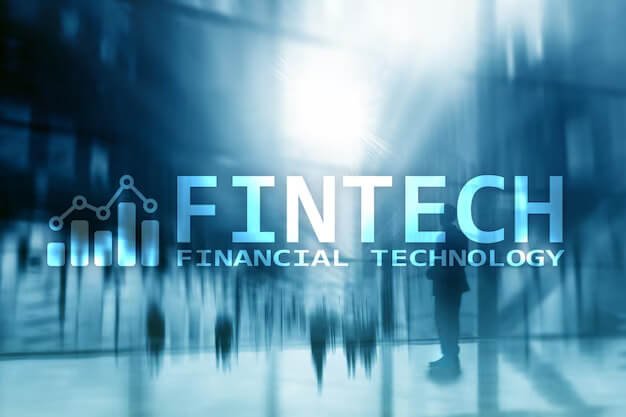Table of Contents
Thruster Finance is a decentralized exchange (DEX) built on the Blast blockchain. It allows users to trade tokens like ETH, BLAST, and USDB. It features an Automated Market Maker (AMM) system for efficient trading and offers yield opportunities for liquidity providers. With $7.5 million in seed funding and a valuation of $70 million, Thruster finance aims to revolutionize DeFi and provide a fair launch platform for the Blast ecosystem.

What is Thruster finance?
Thruster finance is a decentralized exchange built on the Blast blockchain. A decentralized exchange (DEX) platform allows people to trade digital currencies without an intermediary like a bank or company. Users can deal directly with one another instead of relying on a central authority through smart contracts. This fast, secure, and transparent system allows users to control their funds completely.
Thruster Finance offers a range of trading tokens, such as ETH and BLAST tokens, and it provides users with the opportunity to earn rewards by participating in liquidity pools. The platform uses an Automated Market Maker (AMM) system to automatically set prices and facilitate trades, offering a smooth trading experience.
For more on the basics of DeFi, check out this Wikipedia article on DeFi.

What is DeFi?
DeFi, or Decentralized Finance, refers to financial services built on blockchain technology. These services allow individuals to transact directly without intermediaries such as banks. By using blockchain networks like Ethereum, users can trade, lend, borrow, and earn interest, all while keeping control of their funds. For more details, visit the DeFi Wikipedia page.
How Does a Decentralized Exchange (DEX) Work?
A decentralized exchange (DEX) is a platform where users can trade digital currencies directly without involving a central authority. This type of exchange operates via smart contracts that automatically execute trades when conditions are met, ensuring a secure and transparent process. In contrast to traditional exchanges, DEXs do not hold users’ funds, giving them more control over their assets.
DEXs often use Automated Market Makers (AMMs) to set token prices. AMMs adjust token prices based on supply and demand, making it easier for users to trade assets instantly without waiting for a matching order. Users can also earn rewards by providing liquidity to the exchange and generating passive income.
The Role of Yield in Decentralized Exchanges
One key benefit of using decentralized platforms is the opportunity to earn yield. Yield refers to the rewards users can earn by providing liquidity to the platform. Regarding DEXs, liquidity providers earn a portion of the fees generated by trades made on the platform. This model allows users to passively grow their holdings while contributing to the exchange’s liquidity.

How the $7.5 Million Funding Will Impact the Platform
In March 2024, Thruster finance raised $7.5 million in a seed funding round led by Pantera Capital. This funding will help improve the platform’s features, expand its user base, and integrate more DeFi protocols. With a $70 million valuation, this funding boost signals a growing interest in the project and demonstrates confidence in its future.
The funds will enhance Thruster finance’s technology, improve user experience, and grow its ecosystem. As more people enter the DeFi space, the demand for efficient, decentralized exchanges will continue to rise, and Thruster finance is well-positioned to meet that demand.
Learn more about Pantera Capital‘s investment in Thruster finance by reading this Crypto Times article.
The Role of the Blast Blockchain
The Blast blockchain powers Thruster finance, providing a fast, secure, low-cost, decentralized trading solution. The blockchain ensures that all transactions are processed quickly, without the delaysBlockchainees seen on traditional financial networks. Thruster Finance uses a blockchain to offer a transparent and verifiable way for users to trade digital assets.
The Blast blockchain helps ensure Thruster finance operates efficiently, providing low transaction fees and fast confirmation times. This makes it a perfect fit for DeFi applications, where quick and cost-effective transactions are critical.
For more information about blockchain technology, visit this Wikipedia page on Blockchain.
Why Should You Care About Decentralized Exchanges?
If you’re interested in cryBlockchainies or DeFi, decentralized exchanges offer several advantages:
- Control Over Your Funds: Unlike centralized exchanges, DEXs allow you to keep control of your assets at all times.
- Earn Yield: By providing liquidity, you can earn rewards from transaction fees, giving you a chance to earn passive income.
- Security: DEXs use blockchain technology, making them secure and transparent. Since there is no central authority, the risk of hacks and fraud is lower.
- Access to DeFi Products: Many DEXs integrate with other DeFi protocols, allowing you to access a wider range of financial services.
For a broader understanding of DeFi, check out the DeFi Wikipedia page.
The Future of Decentralized Finance
The future of DeFi is bright, and Thruster Finance is part of that growing movement. With the support of a strong blockchain like Blast and the recent funding injection, Thruster Finance is well-equipped to lead the charge in decentralized asset trading. As more people discover the benefits of DeFi, platforms like Thruster Finance will become increasingly important.
Conclusion: Thruster Finance’s Impact on the DeFi Ecosystem
In conclusion, Thruster Finance is helping to reshape the world of digital asset trading. With its focus on yield-driven trading, security through blockchain technology, and support from Pantera Capital, Thruster Finance provides users with an innovative and secure way to engage in the DeFi space. As it continues to grow and evolve, the platform is set to offer even more opportunities for users to earn, trade, and invest.
If You want to read more about Education Or Finance, visit Infordius.
FAQ’s
Q1. What is yield-driven trading in finance?
Yield-driven trading refers to the practice of earning rewards from your financial activities, such as trading or providing liquidity, in a decentralized finance (DeFi) platform. By participating in activities like liquidity provision, traders and investors earn a share of the transaction fees generated by the platform. This model allows users to generate passive income, making it an attractive option for those looking to grow their assets beyond traditional trading.
Q2. How does liquidity provision work in decentralized finance?
In decentralized finance (DeFi), liquidity provision involves users adding their digital assets to a pool that facilitates trading on the platform. By providing liquidity, users enable others to buy and sell tokens more easily. In return for this service, liquidity providers earn a portion of the transaction fees, which is known as yield. This system helps ensure that the platform remains liquid and operational, benefiting both the users who provide liquidity and those who trade.
Q3. What are the benefits of decentralized finance (DeFi) over traditional finance?
– Decentralized finance (DeFi) offers several advantages over traditional finance:
– Transparency: All transactions are recorded on the blockchain, making them publicly verifiable.
– Lower fees: DeFi platforms often have lower transaction fees compared to traditional banks or financial services.
– Greater control: Users retain full control over their funds, unlike in traditional finance, where third parties manage assets.
– Access to global markets: DeFi platforms are accessible to anyone with an internet connection, without the restrictions often found in traditional finance.
Q4. How do I earn passive income through finance platforms?
To earn passive income on finance platforms, you can participate in liquidity provision or yield farming. By adding your assets to liquidity pools or staking tokens, you help provide the necessary liquidity for the platform to function. In return, you receive a share of the platform’s transaction fees or rewards. This allows you to generate income without actively managing your assets or engaging in daily trading.
5. What are the risks involved in decentralized finance (DeFi)?
While DeFi offers attractive opportunities, it’s important to understand the risks:
– Smart contract vulnerabilities: DeFi platforms are built on smart contracts, which, if not properly audited, could be vulnerable to hacks or bugs.
– Market volatility: The crypto markets are highly volatile, and the value of your assets can fluctuate dramatically.
– Liquidity risk: In some cases, liquidity pools may not be large enough to support large trades, which could lead to slippage.
– Regulatory uncertainty: As DeFi is still a relatively new space, it faces the risk of evolving regulations that could impact its use or operations.








